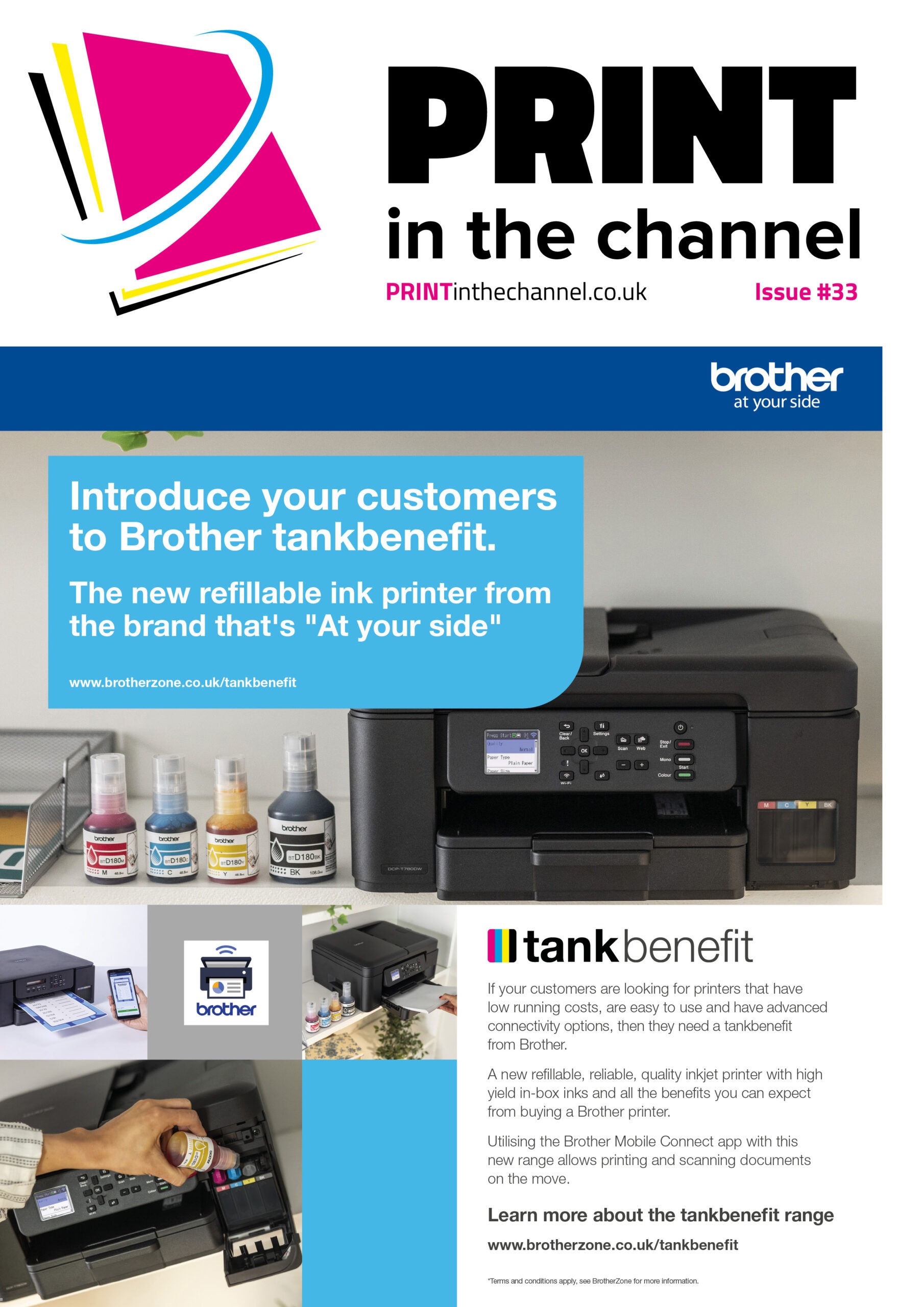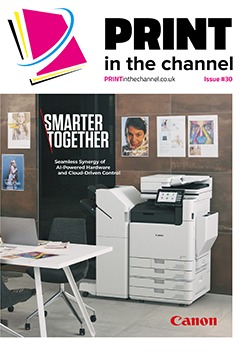Epson has sought to address product circularity and waste goals through offering extended business printer warranties and parts replacement; guaranteeing serviceable life for up to eight years.
For many businesses, regardless of the sector(s) they operate in, sustainability is becoming an increasingly important consideration. Businesses want to use less energy and emit more carbon and look at all aspects of the business to achieve this – including the print fleet.
To that end, in November, and in a move to further address circularity and waste reduction goals, Epson launched an extended warranty and parts replacement programme for its business printers. The scheme extends typical contracted printer life cycles by up to three years to a maximum of eight, in turn supporting end user and channel partner efforts to improve sustainability.
“Epson’s extended warranty and parts replacement programme goes beyond the typically offered five-year warranty period,” says Dan Wogan, office printing product manager, Epson UK. “The new scheme will guarantee serviceable life for business printers for up to eight years, marking a significant extension that sets a new industry standard.”
Dan explains that the move to extend the warranty and parts replacement programme has been fuelled by demand from channel partners and end users. “The impact of the COVID-19 pandemic resulted in a significant decrease in device usage over an extended period, preventing many business printers from reaching their ‘lifetime profit value’ within the standard five-year timeframe,” he says. “Recognising this shift, Epson responded to the increased demand for extended serviceable life for printers and provided partners with additional support, while giving office products a second life.
“That said, the driving force behind this programme extends beyond customer needs and is more so grounded in Epson’s overarching sustainability goals – specifically around pursuing a circular economy. By ensuring these printers can seamlessly integrate on-board software solutions, with the flexibility for upgrades throughout their operational life, Epson can empower its customers to keep products in the field for longer and in turn, help to address their own sustainability goals.”
Dan adds that extending the life of their printers by three years could result in substantial savings for businesses. “Not only will they be able to cut back on the costs associated with frequent printer replacements, they’ll also be able to eliminate the need to dispose of older ones,” he says. “Therefore, by extending the printer life cycle, businesses can save money while reducing electronic waste.”
Extended play
The way Epson’s printers are built also plays a part in extending their lifespan, Dan adds. “The use of Heat-Free technology in Epson’s inkjet printers imposes fewer stresses on serviceable parts compared to those using laser technology – resulting in a longer product life,” he says. “Additionally, the inkjet printers use fewer serviceable parts and consumables than their laser counterparts, making them more user-friendly for efficient servicing and management.”
Even if a part does fail, Epson’s easy parts replacement programme is there to help. “The easy parts replacement programme provides a ‘parts only’ warranty option — akin to an insurance plan — extending up to five years for dealers capable of handling their own service needs,” Dan says. “This way, dealers have the flexibility to opt for a hassle free ‘pack-it-off-to-us’ arrangement, ensuring full support and peace of mind throughout the extended warranty period.”
Focus on advantages
Advantages such as these should be emphasised by resellers, Dan says. “Resellers promoting Epson’s extended warranty and easy parts replacement programme should focus on the remarkable advantages these initiatives bring to customers. By ensuring a serviceable life of up to eight years, surpassing the standard five-year warranty, customers benefit from extended reliability and value.
“As a result, this reduces costs linked to frequent replacements and removes the need to dispose of older devices. Furthermore, resellers should stress how these programs contribute to a circular economy, emphasising the positive impact on improved efficiency, cost-effectiveness, and ecological responsibility.”
Increasing sustainability
The move to extending the life of its printers is part of Epson’s ongoing commitment to sustainability. “Epson’s extended warranty and parts replacement program aligns with its sustainability goals by addressing product circularity and waste reduction,” says Dan. “The program allows Epson to gain maximum value from resource use and contributes to the company’s goal of being underground resource-free by 2050.
“Epson is always looking for ways to decrease the impact of our business, from our own corporate impact to the more product-direct targets which aim to reduce scopes 1 and 2 greenhouse gas emissions by 34% by 2025.
“As a company we’ll continue to focus on developing technologies that are precise, compact, and energy efficient. This is true of Epson’s heat-free inkjet devices as it is across Epson’s technology range.
“Furthermore, Epson is continuing to invest into research and development and our commitment to sustainability is prominently showcased in our annual green report, providing a comprehensive overview of our ongoing efforts and achievements.”
This is something Dan feels will become more commonplace in the sector. “It’s easy to imagine more players in the industry wanting to explore and implement initiatives to extend the life cycles of their printers, not only to remain competitive but also to keep up with increasing demands to support both end users and channel partners,” he says.
“We’re not the only vendor promoting keeping devices in-field for longer, but this trend will no doubt evolve to become even more widespread.”









